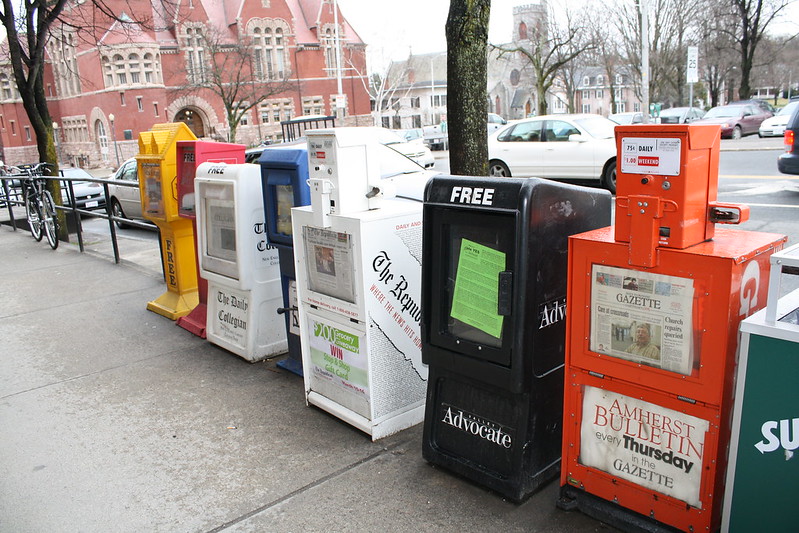During the recent election, I found myself searching for information about the Massachusetts ballot. I didn’t know anything about the people that were running for governor or any of the questions. I felt out of the loop and disappointed in myself for not being involved in local politics.
As I was researching, I wondered why I knew so little about the election —particularly the Massachusetts ballot. I realized I knew much more about the Pennsylvania and Georgia elections than my own state’s. As I thought about it more I realized why — I don’t watch the news.
Based on research from Wellesley College, most college students are less engaged in local news channels or newspapers as a news source. Instead, most stay informed about news from alternative sources like social media or conversations with peers.
Although sources like social media are fast and available to many students, they generally aren’t focused on local news. Instead, students are very informed about global and national news, as social media posts are meant for a broader audience. As a result, I believe that solely getting news from social media can have negative effects on students, leading to them become uninformed and having dangerous consequences on the political state of the country.
The news presented on local news sources tends to present unbiased information that attempts to not take a political stance. Social media however tends to be biased or could even be fake sourcing, focusing instead on political motivations or comedic aspects. Politicians like Donald Trump have used platforms like Twitter in the past as a press conference, spreading their own words without interpretation from another source. Furthermore, some people spread fake news on social media because they think it’s funny to lie and see viewers believe them.
Twitter, Instagram and Snapchat are not reliable news sources by any means. Any news sourced from social media would require research from other sources to see if the content is reliable.
Based on motivations alone, social media generally focuses on news that is entertaining or click worthy content. Many postings on social media are focused on getting the most views, likes or shares to be monetized, putting more focus on sensationalized news. Entertaining aspects of politics can be captured over necessary local news.
In the recent election, many people across the country turned to the Pennsylvania, as it provided some entertainment value to watch TV doctor personality Mehmet Oz, or “Doctor Oz,” running against Democratic front runner John Fetterman. The same thing occurred with the Georgia Senate race as Hershel Walker was slammed with claims from his son of paying off his girlfriend to have an abortion and cheating on his mom multiple times while running a pro-life and Christian campaign.
Even though elections across the country can affect everyone, residents from different states have less control over them than their own state elections. It is important to know what is happening in Georgia and in Pennsylvania, but it is also important to know what is happening in your own state so that you can make informed decisions and be involved in politics.
Voter participation in local elections is especially important following the overturning Roe v. Wade, as state elected officials are now allowed to make decisions regarding abortion laws. People need to vote more than ever, so they can see their opinions represented and have their rights protected.
Without local news sources people risk becoming uninformed voters or lacking interest in local politics or voting. I believe college students should try to read local newspapers or watch some sort of local news to provide them with correct information on what’s going on in their area and in their state.
Lily Fitzgerald can be reached at [email protected].



















Wesley Sulek • Dec 4, 2022 at 8:17 pm
Excellent insight. Thank you for sharing this info with your bros&sis. From an alumnus who’s a combat veteran.